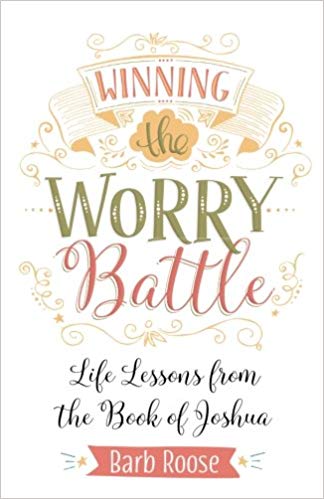Are You a Worrier or a Warrior?

My oldest daughter, Kate, is a lieutenant in the US Army. As her mom, I love that my oldest girl is both a woman and a warrior. One of the things I admire most about her life as a soldier is the daily discipline in preparing for battle. Her life as a soldier has taught me a lot about what it means to be a warrior daughter of God instead of a worrier who feels like she’s losing the battle.
Every single one of us is facing a tough battle today. Perhaps, you’re facing more than one battle in more than one area of your life. Who are the people that you are fighting for today? Some of us are fighting for our struggling children, rocky marriages or a chance for a family. Likewise, what threats to your health or welfare are you fighting against? Perhaps you are fighting against a temptation, an addiction or some other spiritual or moral threat to your life or faith.
How you show up and fight the battles in life matters. So, do you feel like a warrior or a worrier? Here are some differences between warriors and worriers:
- Worriers fight themselves while warriors fight the problem.
- Worriers have a losing mentality, but a warrior focuses on God’s promised victory.
- If a worrier loses, she gives up and makes excuses. If a warrior loses, she regroups and gets back into the fight.
For much of my teens through my early parenting years, I lived as a Christian worrier, rather than a Christian warrior. Talk about guilt! I knew that I shouldn’t worry, but I did. Am I spending enough time with my kids? What if my husband and I can’t figure this out? What if I’m working too much? What if I gain any more weight? I had a worry for every hour of the day! You know that old cliché “just pray about it”? Well, that didn’t work for me. I did pray, but I still worried! Why didn’t prayer work for me? Was God disappointed with me over my worry battle?
When I hit rock bottom during a season of life that I refer to as the “Dark Years,” I had to start over in how I approached my faith. I began my rebuilding process on the wisdom of Matthew 6:33: “Seek God first above all else…” As I studied the Bible, I learned prayer was only part of the strategy in winning my worry battle. I needed to pray, but I also needed to learn how to fight in faith.
Fighting in faith is what happens when we put our fighting friends of peace, courage, and strength to work under the power of the Holy Spirit. Yes, we should pray, but God’s equipped us with these additional tools to use in fighting fear and worry. God’s peace gives us security and keeps us calm. God-empowered courage keeps us moving forward because we know that we’re not alone. God’s strength helps us hold on or hang on for as long as needed. Warriors must pray and use the other tools God provides for us to fight fear, uncertainty, and worry.
In order to use these God-empowered tools effectively, warriors must practice and prepare. Every day, my daughter and the other soldiers condition their bodies and mental skills so they will be ready to use their weapons to fight. It doesn’t matter if it’s raining, snowing or they have a headache, those soldiers get out there and prepare. If we are going to be warriors against worry, we’ve got to commit to preparing each day as well.
In Winning the Worry Battle, I’ve created multiple tools inspired by the Old Testament book of Joshua to help you practice and prepare to fight against worry. Here’s one of those techniques called the 4P Drill. This simple tool – Promises, Present, Pray and Provide – give you a framework to keep your warrior mindset and help you fight in faith against worry. You can write those four words down and work those steps whenever you feel a worry coming on in your mind.
1. Repeat God’s Promises
When you know God’s promises, you can say “no” to fear and panic. Here’s one promise you can focus on today if you need to take a strong step into the warrior way: “I can be strong and courageous because God is with me wherever I go.” (Joshua 1:9)
2. Give yourself the “gift of the present”
Since our fears and worries are attached to future uncertainty, the best way to short-circuit them is to pull your mind back from thinking about the future and focus on the present. Repeat to yourself: “God is taking care of me, right here and right now.” Keep repeating that over and over again.
3. Pray
Worry is talking to yourself, while praying is talking to God. When you invite God into the conversation and remember He is taking care of you, the spiritual activity of prayer infuses peace and hope into your previously panicked and hurting heart.
4. Provide
If there is someone in your life that you're tempted to worry about, you don’t have to obsess about all of the ways their life is going down the drain. Instead, you can be a healthy blessing to them by making a ten-minute encouraging call, sending a card, making a meal and most importantly praying for them.
We can’t let busy schedules, apathy or a worrier-attitude stop us from getting into position for God to give us victory over our worry battle. A warrior who doesn’t practice and prepare will act like a worrier when the pressure is on.
Adapted with permission from Winning the Worry Battle by Barb Roose, copyright © 2018 Abingdon Press.






